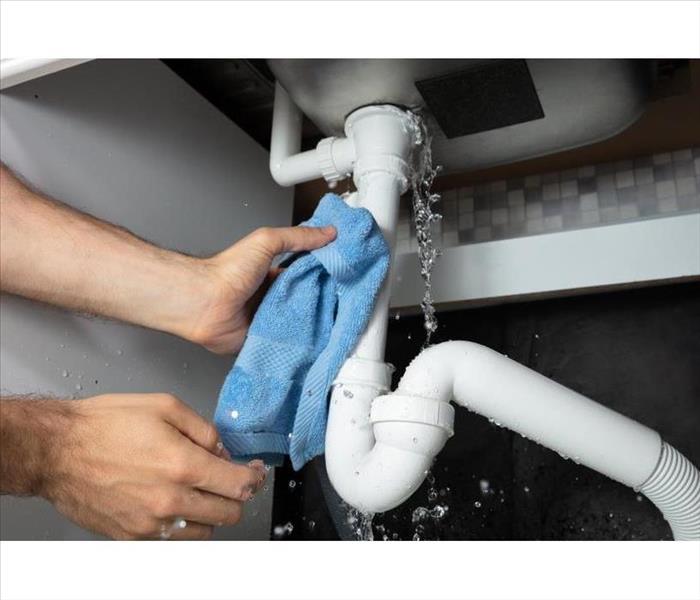Detecting and Confronting Common Water Losses
9/25/2019 (Permalink)
Businesses in Plano, KY, greatly depend on water for a variety of purposes, from plumbing to equipment function. This also means that water is present everywhere, and that any type of malfunction, such as damaged pipes or a defective roof, can lead to a large loss for your business. Due to the prominence of water, leaks are the most common type of business loss, so you might benefit from learning how to resolve and prevent them from occurring.
Most Covered Water Losses
Insurance policies mostly cover water incidents that involve water leaks and exclude ones that involve large quantities of water, such as flooding, natural disasters or surface water. Covered losses can occur from surprise or sudden events, including burst pipes or erratic fire suppression equipment. An insurance plan can generally cover the costs involving the repair of the property. It can also cover the fire system's repair if it is the source of the leak. Damage to the building itself is also part of the water loss.
Causes of Water Leaks
These water losses occur due to a variety of potential scenarios.
- Broken or damaged pipes
- Defective fire sprinklers
- Malfunctioning equipment
- Faulty roofing
As a commercial property owner, you might need to pay attention to these causes to prevent a future water loss. Ensure that maintenance is performed to your business equipment, fire sprinklers or piping system to prevent leaking pipes and other disasters that can lead to a business loss.
Resolving Water Losses
If you find a water leak in the building, locate the source and shut off the water immediately. Make sure to contact emergency restoration services to control and repair the damage present in your property. Check the insurance plan to be sure it covers this specific incident.
Water leaks have numerous causes, from damaged pipes to compromised roofing, and are the most common form of business loss. Protect your Plano, KY, business from water loss by preventing potential issues, hiring damage remediation specialists and consulting your insurance.






 24/7 Emergency Service
24/7 Emergency Service